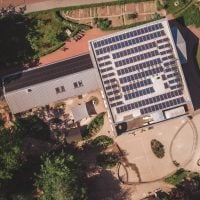Deadline: 28-Mar-23
The European Commission (EC) is pleased to announce the proposals for Biodiversity, economics, and finance: unlocking financial flows towards reversing biodiversity loss.
Scope
- Nature provides all sorts of essential services to our societies: clean air and water, food, pollination, carbon sequestration and pollination, it sustains tourism and leisure activities, it contributes to mental and physical health and delivers many other functions. In many instances, nature is also the most effective insurance policy – protecting us from floods, landslides, fires, or extreme heat.
- However, we are facing an unprecedented crisis of biodiversity loss, posing a serious threat to our future welfare. 75% of the land-based environment and about 66% of the marine environment have been significantly altered by human actions. Nearly 1 million species are at risk of extinction from human activities. The loss of clean air, drinkable water, pollinating insects, forests, and species pose as big a threat to species survival as climate change. The loss of biodiversity increases the challenge of limiting climate change, as healthy ecosystems naturally absorb carbon from the atmosphere.
Funding Information
The check will normally be done for the coordinator if the requested grant amount is equal to or greater than EUR 500 000, except for:
- public bodies (entities established as a public body under national law, including local, regional or national authorities) or international organisations; and
- cases where the individual requested grant amount is not more than EUR 60 000 (lowvalue grant).
Expected Outcomes
Project results are expected to contribute to all of the following expected outcomes:
- Mobilisation of mainstream finance to slow down, and reverse biodiversity loss in the broader context of environmentally sustainable development, by catalysing nature-positive investments such as nature-based solutions, and by promoting a more holistic approach that considers nature’s essential contributions to other objectives such as those related to climate, health, food, and water security;
- New knowledge, methodologies, and tools to support the implementation of the EU strategy for financing the transition to a sustainable economy, with a view to reorienting financial flows towards activities that benefit protection, restoration and sustainable management and use of biodiversity and ecosystems, including information, tools, and metrics to better integrate biodiversity, ecosystem services and natural capital considerations in their decision-making processes;
- Better awareness, understanding and know-how of economic actors, the financial community, and key institutions, public and private, about the opportunities and barriers (knowledge gaps, skills gaps, etc.) associated with the implementation of the sustainable finance taxonomy, including its technical screening criteria and ‘Do No Significant Harm’ (DNSH) principle in regard of the environmental objective focusing on the protection and restoration of biodiversity and ecosystems
- Contribution to the implementation of the EU biodiversity strategy for 2030 by helping to put Europe’s biodiversity on the path to recovery by 2030 for the benefit of people, climate, and the planet and by better measurement, monitoring, and management of biodiversity.
Eligibility Criteria
- To become a beneficiary, legal entities must be eligible for funding.
- To be eligible for funding, applicants must be established in one of the following countries:
- the Member States of the European Union, including their outermost regions,
- the Overseas Countries and Territories (OCTs) linked to the Member States,
- countries associated to Horizon Europe;
- the following low- and middle-income countries.
For more information, visit European Commission.









































